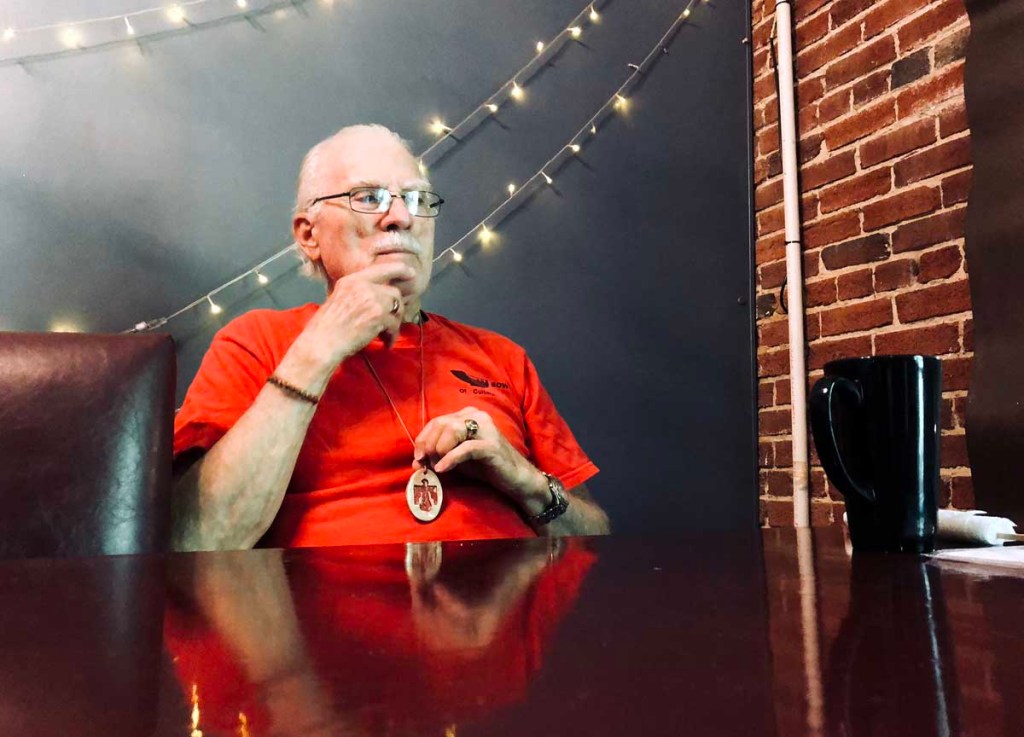A work of art: Longtime Empty Bowls potter Wes Abbott dies
Published 5:00 am Friday, June 21, 2019

- Wes Abbott has given his talent for creating pottery to the Empty Bowls campaign for many years.
For Wes Abbott, pottery was never work, especially when done in the service of a cause he believes in.
Abbott, one of the original potters for Empty Bowls, died Wednesday night.
Abbott set a goal to make hundreds of bowls each year and is credited with creating thousands for the charity program that donates to Cullman Caring for Kids’ food bank, said Tanya Shearer, an organizer of the event and longtime friend of Abbott.
“He was so dedicated to helping people through Empty Bowls. Even when his health was declining, he was determined to keep making bowls,” Shearer said.
For his longtime work with Empty Bowls, The Times recognized Abbott as a 2018 Unsung Hero.
The following is an excerpt from a past story recognizing Abbott’s service:
For close to four decades, Abbott held a professor’s post at the University of Florida, teaching art to students while further refining his own craft.
“When I retired and moved here, I had given my potter’s wheel to the person I had picked to replace me at the University of Florida, and now I didn’t have a potter’s wheel,” Abbott told The Cullman Times in a 2018 interview. “So I went down to Wallace State and made friends with Sandra Heaven, their Art department chair, and got permission to use one of their wheels.
“Well. Word came that they were gonna start Empty Bowls in Cullman. Sandra and I made the first of the ‘empty bowls’ for the first meal that was held at the Methodist church that year.”
Along with his niece, Sandra Abbott, and a handful of other local potters, Abbott helped prepare the signature clay pots that local people pay for when they buy an Empty Bowls ticket. Modesty prevented him from offering a hard number, but over the course of the event’s 15-year history, it’s safe to say he made, by hand, thousands of bowls.
Born in the Depression, his love affair with clay began for the simplest of reasons: because it was available in abundance, at a time when other materials weren’t.
“When I was a kid, clay was free. And I loved the way clay would squash in between my bare toes after rain, in puddles. That led to me playing with it with my hands, and my mother saying, ‘Get out of that mud! You’ll get your clothes dirty!’ But, it wouldn’t be long before I’d be back in it.
“I learned to make things out of mud. Mother began to see that I was artistic, and she began to make a sort of mixture of clay and flour and water for me to use. She also began to look for things she could make dyes and paints for. She’d boil down onion skins she’d peeled; she got berries to mash, and I could paint with their juice.”
Abbott graduated from what’s now known as the University of North Alabama in Florence with a Bachelor of Science in Education, going on to do his Master’s and Ph.D. – level work, with an emphasis on art, at both George Peabody College for Teachers (now Vanderbilt University) and the University of Florida.
Abbott joined the UF Art faculty in 1958, and there he remained, until returning to Cullman in 1996.
“I learned along the way that art is the only thing in this whole wide world that teaches us what we are,” he shared. “Science can teach us what we’re made of; history can teach us where we came from; philosophy can teach us what we believe. But nothing except art can help us understand what we are.”
“I had a neighbor who was turning 100 years old,” he said. “She’d never been given a bouquet of roses in her whole life. Well, we were gonna change that. I made a vase for her flowers, put the flowers in it, and took it down to her and made her picture. At 100 years old, you could not see a wrinkle in her face.
“You have to remember: words don’t even compare to what actions do,” he said. “The old saying is sure as heck a truth. Actions do speak louder than words.”
Times reporter Benjamin Bullard contributed this story.





